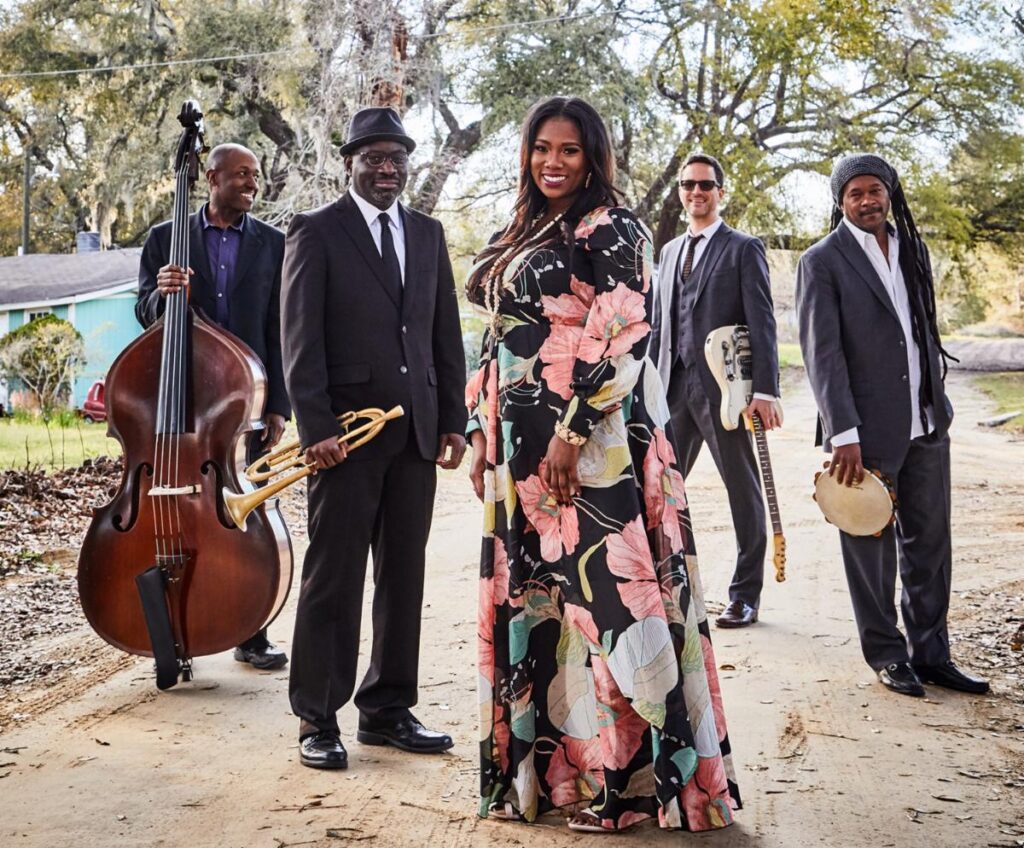Why were you excited to present Ranky Tanky to your audiences?
I’m a North Carolina native, but it was only after living in the coastal part of the state that I learned about the Gullah and Geechee communities. Once I was introduced to their history and traditions, I began seeing so much of the Gullah influence in American food, music, and culture. I wanted to share this with our students and our region, so that they could understand and appreciate the importance of Gullah culture, namely its rich musical traditions.
What are some highlights from the Gullah Music Workshop and the performances?
The Gullah Music Workshop gave participants an opportunity to learn more about Gullah music — both the historical and social context, as well as the musical rhythms and communal performance traditions. The highlight of the workshop was having the opportunity to learn some of the songs and perform along with the artists. The Q&A was also an incredibly valuable experience for our students, many of whom were music education students and were able to ask questions and gain insights on how to best teach Gullah music in a culturally responsive and respectful way.
What did you hope audiences would take away from the Ranky Tanky performance and workshop?
I hoped that audiences would be as captivated and inspired by the Gullah story as I was. I hoped they would learn — through Ranky Tanky’s powerful and engaging performance — more about Gullah culture and connect, in their own way, to the music. After the performance, I heard an audience member speaking with one of the artists about a song they performed called Turtle Dove. During their performance, Quiana Parler introduced the song as a lullaby that was passed down through generations. This audience member had heard and even played the song many times in traditional music circles, but until that night never knew anything about its origin.
If you were to do this presentation over again, what would you do differently?
If I were to do this presentation over again, I would have the artists stay in our community longer, so that they could go into schools and perform. Their performances are as educational and inspirational as they are entertaining. That’s incredibly rare.
What program or project do you have coming up in the fall that you are excited about?
In September, we are presenting a work called “The Book of Life,” that I am really excited about. The project is co-produced by Volcano, Canada and the Woman Cultural Centre, Rwanda. It’s a multidisciplinary work, written and performed by the Rwandan artist and activist Odile Gakire “Kiki” Katese and the Women Drummers of Rwanda. It weaves together storytelling, hand-crafted projections and original live music. The work is based on letters written by the survivors and perpetrators of Rwanda’s genocide, and it leads audiences through a remarkable journey of how to rebuild a deep understanding of life in the aftermath of incalculable loss. What is so powerful and inspiring about this work, is that it ultimately offers hope — it’s a story of unlocking life after trauma and finding a humane way forward full of joy. During the artists’ visit, our community will be able to learn more about Rwandan culture, history, and music through interactive conversations and workshops.
